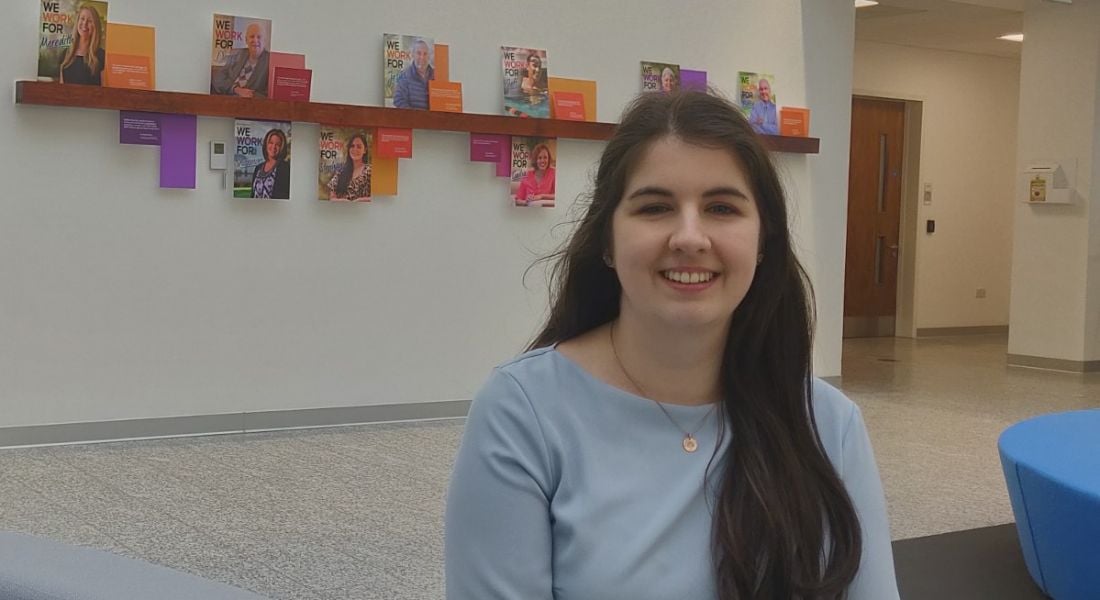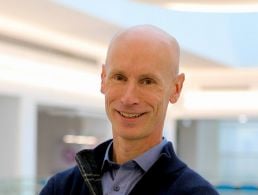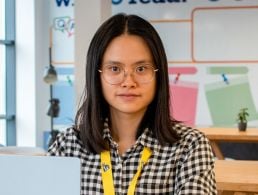In the biopharma sector, soft skills can be just as important as hard, technical skills.
When beginning a graduate programme, you may not always know what to expect. You might be prepared in some way by graduate fairs and talks as well as the actual application process. But still, certain things can come as a surprise and you might end up growing skills that you never thought you would, based on your experience.
Aoife Conlon is on the graduate programme of biopharma giant Bristol-Myers Squibb (BMS). Her first rotation is in operational excellence and the project management office, which came as a surprise given that she qualified as a chemical engineer.
Here, she outlines her experience on the graduate programme so far and the opportunities this rotation has given her.
What did you study in college?
I studied chemical and bioprocessing engineering in University College Dublin (UCD). I started the BMS graduate programme in September 2018 just after my graduation.
With this programme, are you now working in your desired industry?
With chemical and bioprocessing engineering, you can go to many different industries, such as pharmaceuticals, oil and gas, or food and drink. I wanted to work in a company where I felt the work I do could make a difference. BMS is at the forefront of the biopharmaceutical industry, making life-changing medicines for patients – I knew it was the right industry for me.
What drew you to BMS when you were seeking work as a graduate?
I first heard about BMS Cruiserath Biologics in my second year of college when we were given a presentation by some of their employees about the new biologics manufacturing facility being built in Dublin 15 and the different types of roles that they would be recruiting for in the future. I could see how enthusiastic they all were and I knew it would be an exciting time to get involved in the site.
I always wanted to work for a company that values the same things as me. I have always been interested in the body’s immune system and harnessing it to fight disease. In my second year of college, we were asked to create a poster and a presentation on a topic we were passionate about, so I completed mine on CAR-T, which is a new type of therapy.
Immuno-oncology helps the body’s immune system to fight the cancer. This leads to a treatment with minimal side effects as your body now recognises the cancer cells as invaders and can eradicate them like you would with a cold or flu virus. BMS continues to be a leader in the immuno-oncology field.
When final year came around I started to think about the companies I wanted to apply for and BMS remained as one of my top choices, so I talked to some of my classmates who had completed placements in BMS and they all spoke very positively about their experiences, and I was really encouraged knowing they would jump at the chance to go back.
What expectations did you have before you began the programme?
From the college fairs and talks I attended with BMS there, and even from my interview on-site, the BMS team gave me high expectations of the company and their culture. I had heard about the state-of-the-art, multi-product biologics manufacturing facility that was just completed and I followed the updates through their construction videos online.
I hoped with the new facility there would be exciting work opportunities to see projects right from their initiation. With the BMS graduate programme I hoped I would get the opportunity to rotate through dynamic departments, where the work would range from start-up projects to steady-state activities, which was really exciting for me.
What duties and responsibilities were you given initially?
My first rotation is in operational excellence and the project management office (PMO). This was initially a bit of a surprise for me as it may not be considered a typical role for a chemical engineer to move into after graduation. I was first tasked with setting up the site SharePoint for PMO, gathering and analysing lead-time data for the drug product and drug substance manufacturing as well as attending yellow-belt training and assisting with one 5S project for the site.
From my previous placements in the industry, I had gained an interest in Lean and Six Sigma, and this rotation allowed me to build on this experience, getting to interact with teams from the various departments on-site.
This rotation also gave me the opportunity to work on projects ranging from the lab-based to within the manufacturing facility. It also gave me time to get to grips with the entire drug substance and drug product life cycles, which I know will be of benefit to me when I move into my next rotation.
Did the scope of your work change as the programme progressed?
Yes, as my rotation progressed I have been given more accountability for the various different projects that I am working on currently.
Currently I am working on inventory Kanban projects within upstream manufacturing, and overseeing updates to the site strategy for 2019. I am helping to create and deliver PMO training on-site as well learning to use new e-learning software, so I can create training modules for the operational excellence department.
Can you describe a typical day in your role?
A typical day in my role is quite changeable as no two days are the same. However, I usually come in and the first thing I will do is check my emails; often there are ad-hoc tasks that I can do there and then, anything longer-term gets filed and saved as a task in my Outlook.
My day then consists of implementing changes or updates to the SharePoint or tiered boards, and attending catch-up meetings with my manager to discuss progress and areas where I need support. I attend check-in meetings to monitor progress through my project plans – often items come from these meetings that need quick implementation and prioritisation.
Throughout my work I try to question if there are better ways to do things and put forward any new ideas I have. People on-site are very open to hearing all opinions and perspectives, which fosters a great collaborative culture.
How do your responsibilities compare to more experienced employees’?
I am only still relatively new to the company as a graduate, but I feel my responsibilities are similar or becoming similar to those of more experienced employees, and I am sure this is set to continue all the way through the programme.
Do you feel more prepared for working life after completing this programme?
Absolutely. I am only five months into my first rotation and I feel I already have a greater understanding of what it takes to work in the busy biopharmaceutical sector. I am fully included and involved within the department.
I feel the experience and skills that are being utilised and honed during the programme are transferable and applicable to my next rotation and are key for any job role. Problem-solving, communication and project-planning are skills I use every day in my current rotation and I am sure to use in all my future ones.
Why should someone apply to the graduate programme at BMS?
The BMS graduate programme is a great way to take what you have learned in college, build on this and apply it to real-world problems. There are real-life applications of science and engineering waiting for graduates to get involved in.
The goal is clear in BMS: to create innovative medicines to help patients prevail over serious diseases – and, as a member of the graduate programme, you feel the application of your skills and knowledge is valuable in achieving this.




